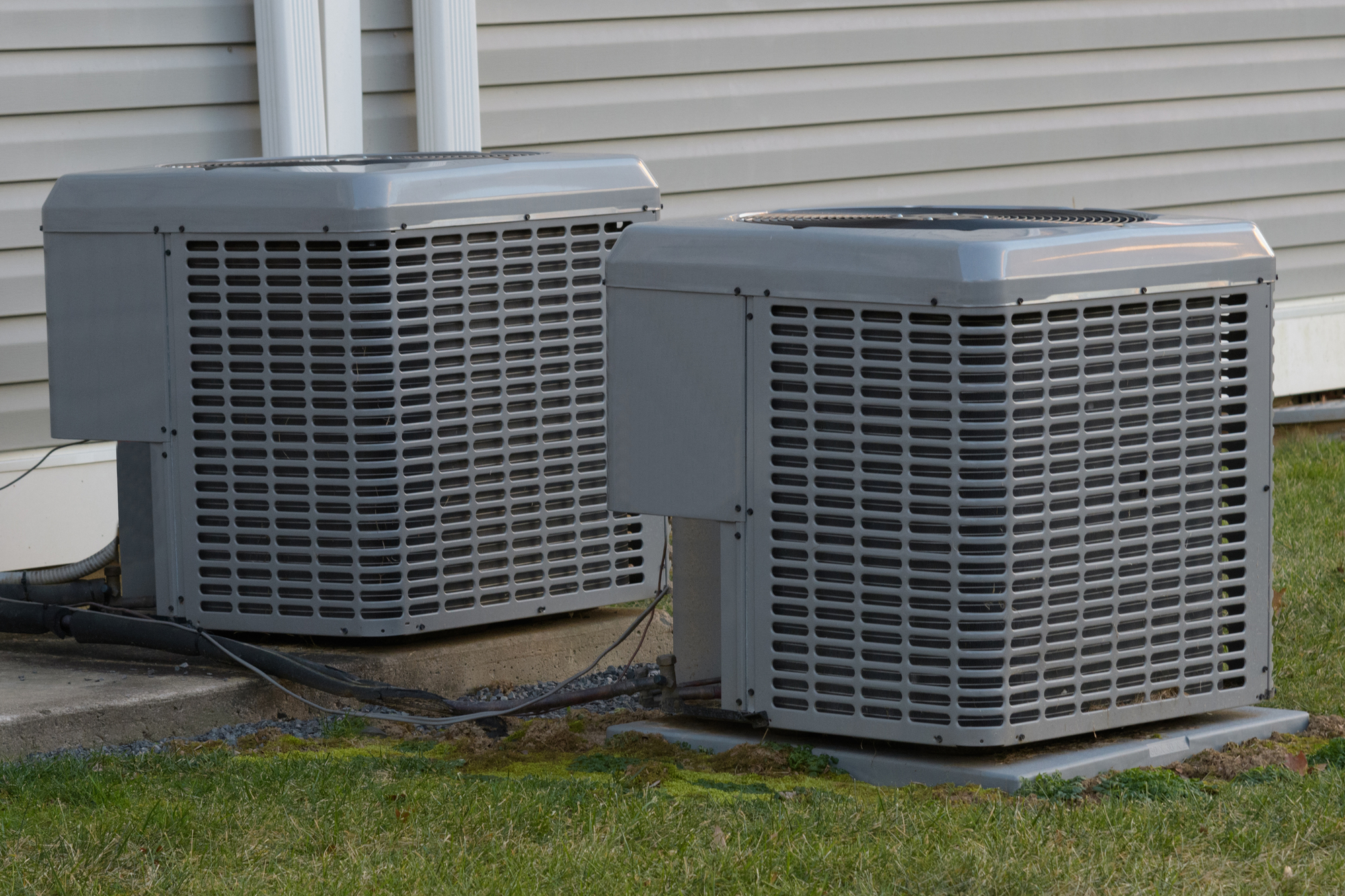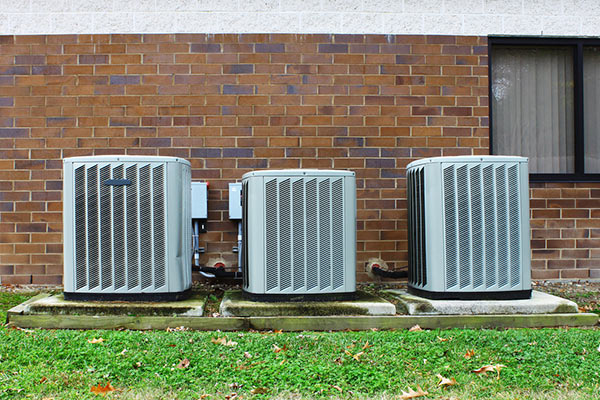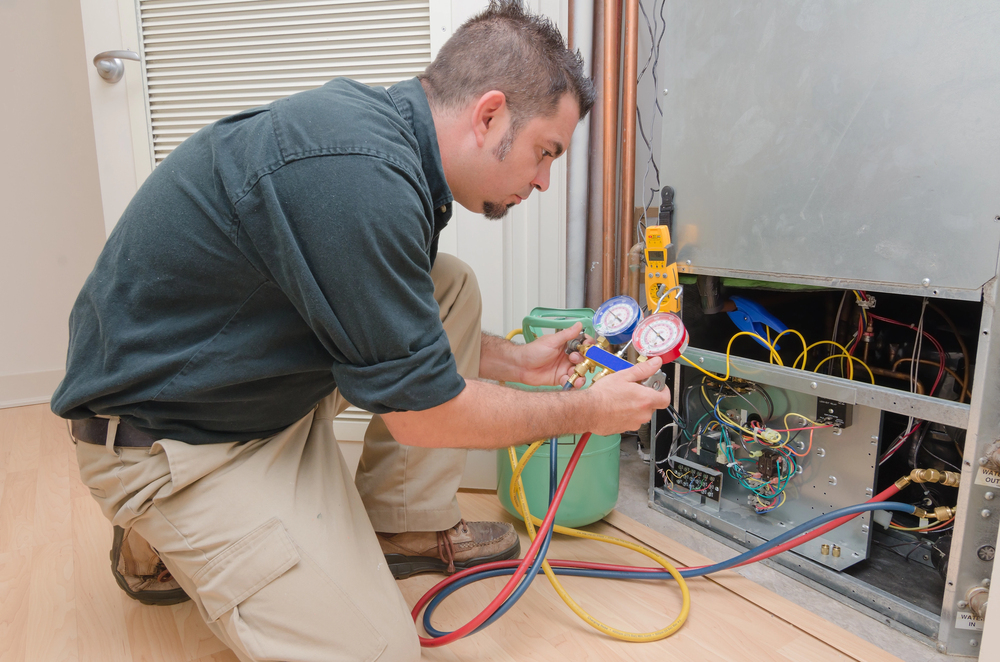The Early Warning Signs of Common AC Issues
Apr 10, 2025

Most AC problems don’t show up all at once. They build up gradually, often with subtle clues that something’s not right. Maybe the air doesn’t feel quite as cold, or the system runs longer than usual. These small signs can be easy to ignore—until your unit stops working entirely. Knowing what to look for early can save you from expensive emergency repairs and help extend the life of your system.
Your AC Is Running But Not Cooling
This is one of the most common and frustrating signs that something isn’t right with your air conditioner. It’s also one of the easiest to ignore if your system still seems to be running. But cooling issues usually start small before becoming full outages.
What causes it?
When your air conditioner is running but your home isn’t getting cooler, it’s often a sign of deeper issues. This could mean low refrigerant levels, dirty coils, clogged filters, or even ductwork restrictions. In some cases, a miscalibrated thermostat or failing capacitor could also cause poor cooling.
Running the system in this state can stress the compressor and reduce its efficiency, making the issue worse over time. Ignoring it too long might lead to a total system shutdown.
What to watch for
If you notice the vents blowing warm or room-temperature air, or if the system never seems to shut off, something is likely wrong. Also look for uneven temperatures across different rooms or zones in your home. These are all early indicators of inefficient cooling.

Strange Noises Coming From the Unit
Unusual sounds from your AC are never a good sign. Even if the system still runs, noises can be early warnings that something internal is wearing down or coming loose.
What it might mean
Every AC makes a little noise, but new or unusual sounds shouldn’t be ignored. A banging or clanking noise could mean a loose part inside the compressor. A grinding sound might point to worn-out bearings. Hissing often signals a refrigerant leak, while buzzing can indicate electrical issues.
These sounds usually show up before a part completely fails. Catching them early can save you from bigger damage down the line.
What you can do
Turn the system off and schedule a professional inspection. Continuing to run the unit could cause other components to break. If you act quickly, a technician can often make a targeted fix instead of replacing an entire section of the system.
Unexplained Increase in Energy Bills
Higher-than-usual electric bills can be a big clue that your AC is struggling. Even if it seems to be cooling fine, the system may be working much harder than necessary due to inefficiencies.
- Dirty filters: Force the blower motor to work harder to circulate air through your home.
- Failing components: Worn motors or a struggling compressor can use more energy before completely giving out.
- Air leaks: Ductwork leaks send cooled air into attics or crawlspaces, which forces your system to work longer.
If your system is older, the cost of keeping it running can quietly add up. Tracking your energy usage over time can help reveal when your system is slipping in efficiency.
Water or Ice Around Your System
Ice and water near your AC unit may not seem like a major issue, but they’re both signs that something inside isn’t working as it should.
Ice buildup
Ice on your indoor coils is a clear red flag. It’s often caused by poor airflow—usually from a clogged filter or blocked return vent. It can also point to a refrigerant issue. While it might seem like a sign the system is cooling too well, it actually means the coils are not exchanging heat properly.
Water leaks
Standing water near the air handler or inside your home often means the condensate drain is clogged or disconnected. Left untreated, water damage can affect ceilings, floors, and even drywall. Most systems have a shutoff switch for these issues, but the root problem still needs to be fixed fast.
Funky Smells When the AC Turns On
If your AC smells off when it kicks on, it could be more than just a dusty filter. Smells usually point to growth or buildup inside your unit—and those issues won’t fix themselves.
- Musty smell: Indicates mold or mildew inside the unit or ductwork—especially dangerous if anyone in your home has allergies.
- Burning smell: Might be dust burning off a heating element, but if it persists, it could signal overheating wires or a failing motor.
- Sour smell: Often caused by stagnant water or bacteria inside the drain pan or duct system.
Any unusual odor coming from your vents is worth investigating. Indoor air quality can be impacted quickly if your system is circulating contaminants through your home.

How to Tell If It’s Time for Repair or Replacement
Some problems are simple fixes. Others might mean it’s time to rethink your entire cooling system. Here’s how to tell the difference.
When a repair makes sense
If the unit is under 10 years old, the issue is isolated, and repair costs are relatively low, it’s often smart to opt for repair. Systems that have been regularly maintained usually have several good years left and can benefit from a professional AC repair.
Signs that it’s time to replace the system
If you’re calling for service frequently, seeing spikes in your electric bill, or your unit is over 15 years old, a replacement system might be a smarter investment. New models are more efficient, quieter, and better at maintaining consistent temps throughout your home. If your system wasn’t sized correctly to begin with, a full installation review can make a huge difference in performance.
Call the Experts Before It Gets Worse
Waiting for your AC to break before calling a technician usually means you’ll pay more and wait longer for repairs—especially in peak summer. If you’ve noticed any of these warning signs, it’s time to get ahead of the problem. To stay informed about your HVAC system, visit our HVAC blog or give us a call today.
